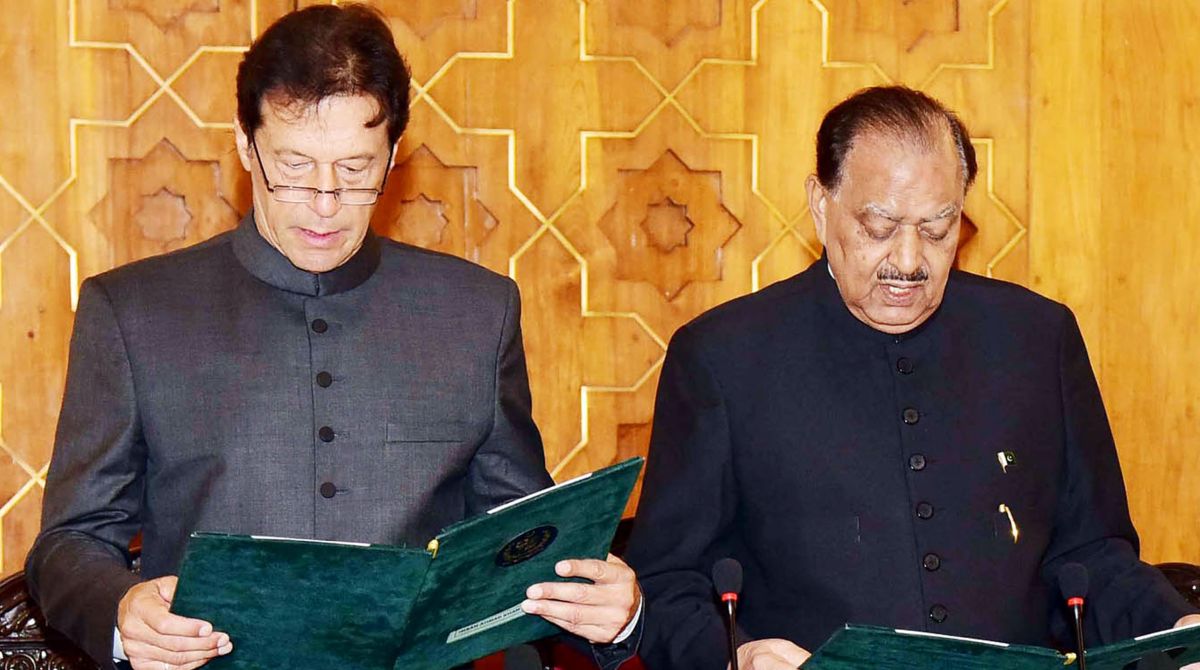Rather than hi-falutin platitudes, as is the wont of those at the helm of governance, Imran Khan’s signal of intent, as articulated 24 hours after being sworn in as Pakistan’s Prime Minister, is a critical presentation on austerity in a stuttering economy.
He has moved on to bread-and-butter issues in the immediate aftermath of Saturday’s grandstanding at Aiwan-e-Sadr. His principal goalpost is to reduce debt and rather surprisingly, curtail the staggering fleet of bullet-proof cars.
Advertisement
Markedly, he will initiate the bold move in a country where the threat posed by Islamist militants is dangerously real. Additionally, he intends to truncate the retinue of the Prime Minister’s servants ~ from a seemingly incredible 524 ~ to just two. The idea, quite obviously, is to effect a huge cut in public spending.
He has announced that he will live in a small three-bedroom house instead of the palatial residence of the Prime Minister. There is no reference to equations with India, let alone the Kashmir issue, in his inaugural address to the nation.
The implications of the appointment of Shah Mahmood Qureshi ~ regarded as an anti-India hawk ~ can for now be only a subject of conjecture to the east of the Radcliffe Line.
Riveted as he was to brass tacks at home, he has set out his vision for what he calls Naya Pakistan, underlining the need to redefine the country ~ as often as not condemned as a failed State ~ by introducing an Islamic welfare system, reducing poverty, and slashing high debt levels.
Implicitly, he has drawn a fine distinction between an “Islamic welfare” system and a theocratic state, as Pakistan was 30 years ago during Zia-ul-Haq’s regime.
Mr Khan has conveyed the message that his 21-member cabinet, as announced on Sunday, will have to gear up for a decidedly drastic bout of economic reform. “We have formed a bad habit of living on loans and aid from other countries,” he said.
“No country can prosper like this. A country must stand on its own feet.”Theoretically, the new Prime Minister has hit the bull’s eye in the face of grave difficulties. It is fairly clear from the electoral swing towards Pakistan Tehreek-i-Insaaf that the anti-corruption drive has resonated with young voters and the burgeoning middle class.
This segment will expect a roadmap to tackle currency problems that plague Pakistan. While details might have been beyond the sope of an inaugural address, the government will very probably seek another IMF bailout.
On closer reflection, Mr Khan was more focused on debt rather than the increasingly fragile currency.
Aside from the economic, he has inherited a welter of problems at home and abroad, including tensions with India, frayed relations with its historically, the US, and insurgency in fractious Afghanistan.
Altogether, he has succeeded to a depleted inheritance. Monday’s overture from Narendra Modi calls for reflection.











